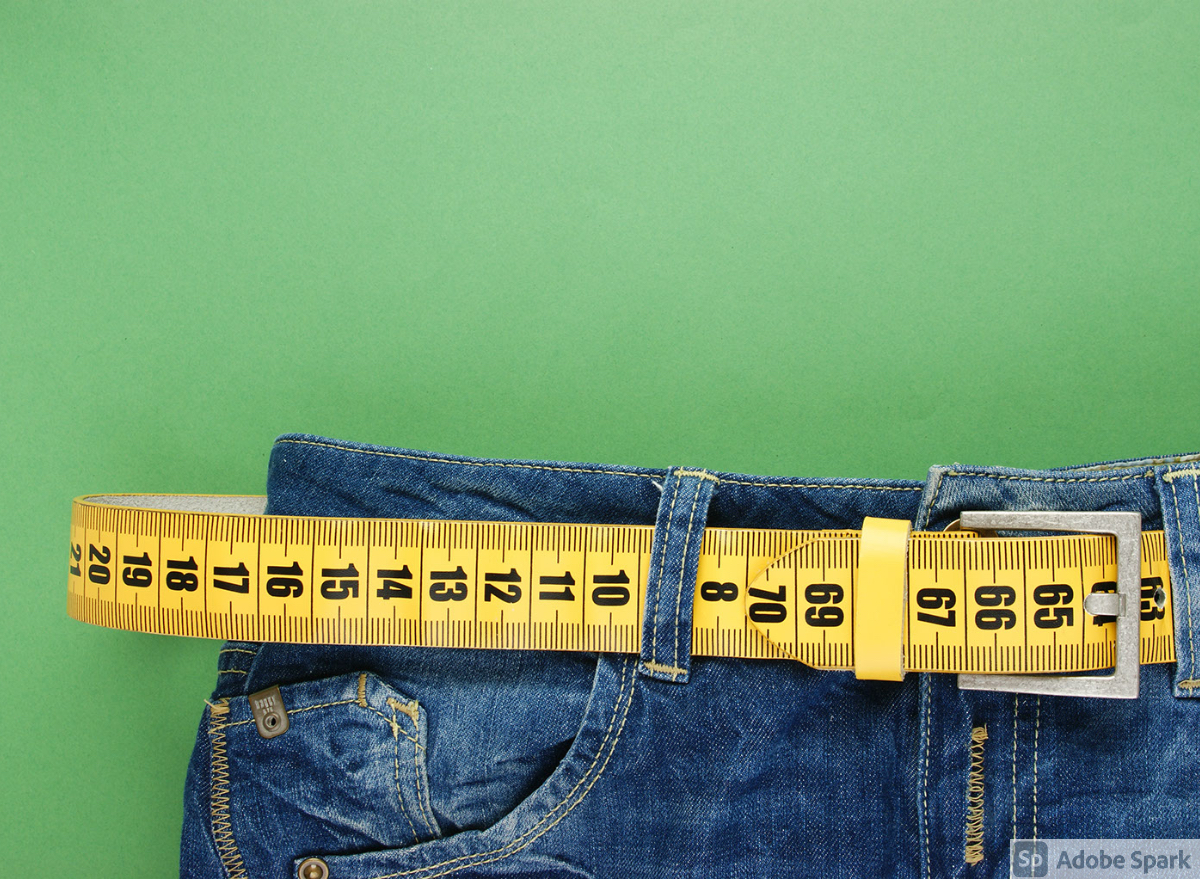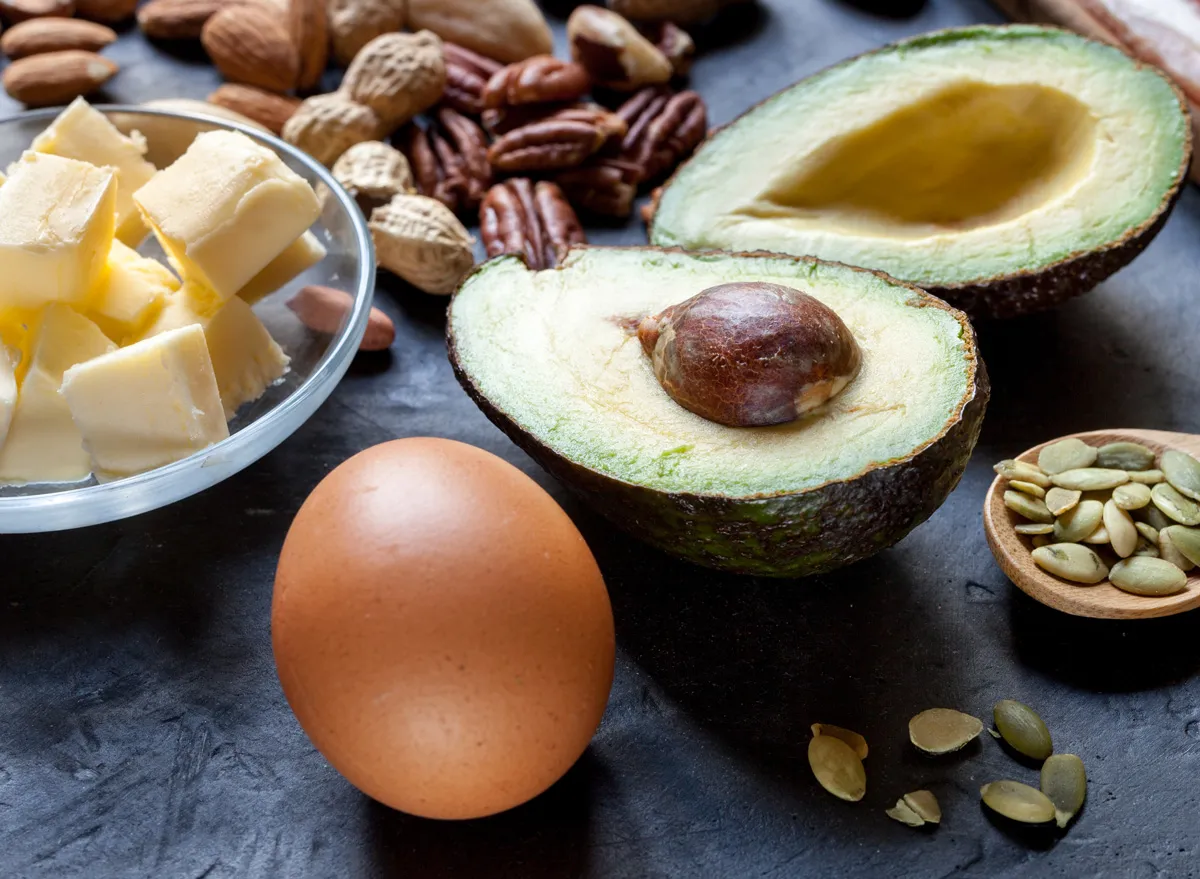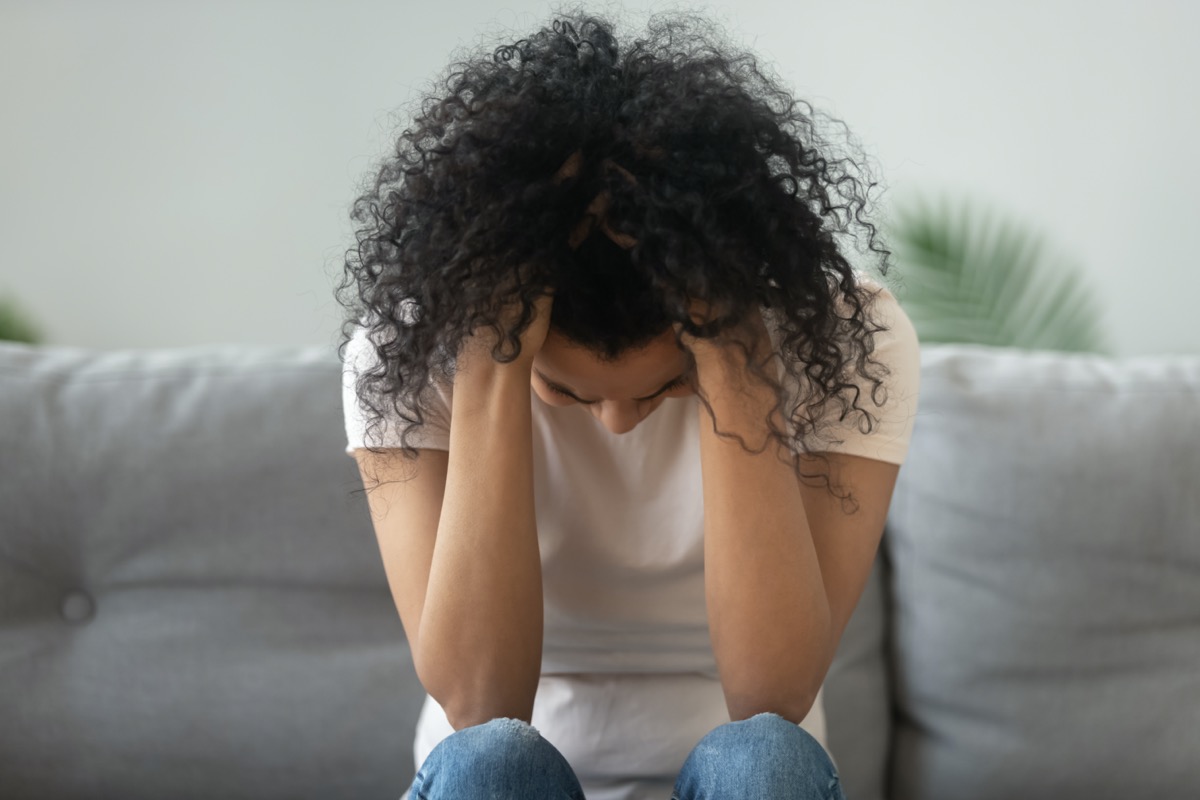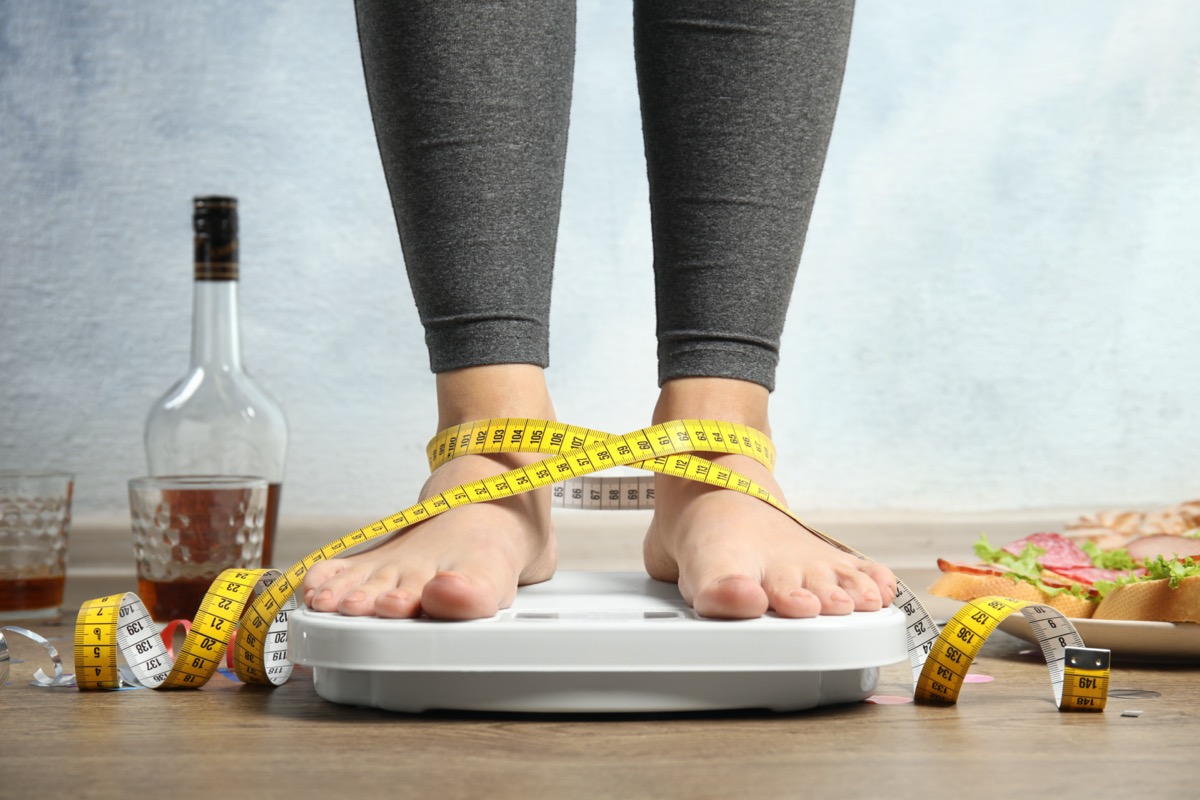Dangerous Side Effects of Losing Weight, According to Science

The health benefits of losing weight are almost too many to name. You'll feel better, sleep better, have more energy, and reduce your risk of disease and early death. But if you undergo dramatic weight loss, lose too much weight too quickly, or simply make the wrong food decisions as part of your plan, there's a good chance you'll experience some of the negative side effects of weight loss that you may not have seen coming.
After all, the loss of excess fat can have a considerate impact on your body, hormones, metabolism, mood, and even your relationship status. For these—and other potentially dangerous side effects of losing weight—read on. And for some great advice for how to lead a healthier lifestyle starting now, make sure you're aware of the One Major Side Effect of Walking Every Day, Say Experts.
You May Become Depressed

According to a study published in the journal PLOS One, though losing weight comes with undeniable physical benefits, the "effects on mental health are less straightforward." The researchers, from the University College of London, found that people who lost 5% or more of their body weight had an increased chance of reporting feelings of depression afterward.
"Resisting the ever-present temptations of unhealthy food in modern society takes a mental toll, as it requires considerable willpower and may involve missing out on some enjoyable activities," noted Sarah Jackson, Ph.D., of the UCL Institute of Epidemiology & Public Health Care, and lead author of the study. "Anyone who has ever been on a diet would understand how this could affect wellbeing."
You Could Be Starving Your Body of Essential Nutrients

Many trendy weight-loss plans require you to slash entire food groups from your diet, which may also mean that you're robbing your body of some essential vitamins, minerals, and other nutrients. Leslie Bonci, MPH, RDN, CSSD, LDN, a sports dietitian who works with the NFL's Kansas City Chiefs, calls this no-no "elimination without justification."
"Cutting out dairy without medical reasons, for instance, lowers your intake of calcium and Vitamin D," she says. "If you were eating yogurt and you suddenly stop, you're not getting as many probiotics for your gut."
Other examples include cutting out too many fats, which could reduce your lipid levels and decrease your body's absorption of fat-soluble vitamins, which adversely impact the health of your skin and hair. And if you're going vegan, you need to make sure you're finding ways to get more necessary protein into your diet. "Remember," says Bonci, "Putting just fruits and veggies on the plate may result in weight loss, but will not promote great health."
It Could Lead to Relationship Difficulties

Studies have shown that successful weight loss is actually easier for couples if they attempt to lose weight together. But, according to a study of 21 couples conducted by researchers at North Carolina State University, if one-half of a relationship loses weight and the other doesn't, it could negatively impact the relationship and potentially cause rifts that could lead to a breakup.
Another study, published in the journal JAMA Surgery, found that those who undergo bariatric surgery and lose weight are putting themselves at risk of breakup and divorce. "In addition to its association with obesity comorbidities," the researchers write, "bariatric surgery-induced weight loss is also associated with changes in relationship status."
You Could Lose Muscle

If you're losing weight too fast, you could be losing the wrong type of pounds. "Calorie restrictive diets may cause your body to break down muscle for energy and fuel," Emmie Satrazemis, CSSD, a registered dietitian and nutrition director at Trifecta, explained to Healthline. If you're losing muscle, you're also losing one of your body's most effective calorie burners, so you're also raising your risk of gaining all of that weight back.
You Could Lose Your Period

"Excessive or sudden weight loss can cause your periods to stop," writes the UK's National Health Service. "Severely restricting the amount of calories you eat stops the production of hormones needed for ovulation."
If this happens, says the NHS, you could be underweight, which is defined as having a body mass index (BMI) of less than 18.5. If that's the case, you should seek out a dietitian for help putting weight back on safely and healthily.
You Could Gain It All Back—And Then Some

Countless studies have shown that crash dieting—AKA eating a really harsh, low-calorie diet—simply doesn't hold up over time. "If you go on a crash diet, you will lose the weight," says Rebecca Leslie, PsyD, MS. "But then you'll likely gain it back. There is even the chance that you will gain more weight back than you lost."
Since that's not your mission, here are some much more effective and lasting ways to lose weight, according to experts.








